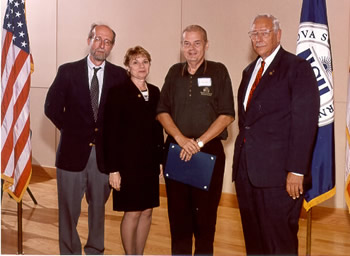Identifying Global Conservation and Research Priorities in Coral Reefs Using Amphipod Crustaceans: An Expedition to the Celebes and Banda Sea region of Sulawesi, Indonesia
Grant Winners
- James Thomas, Ph.D. – Oceanographic Center
- Barry Barker, Ph.D. – Farquhar College of Arts and Sciences
Deans
- Richard Dodge – Oceanographic Center
- Norma Goonen – Farquhar College of Arts and Sciences
Abstract

While evidence for large-scale global change in coral reef communities mounts, scientists and managers continue to view reef biodiversity through a traditional, narrow lens of coral, fish, and mollusks. This constrains accumulation of additional informative data from other highly diverse taxon groups, especially the myriad small cryptic marine invertebrates. While global networks of marine protected areas are intended to ensure long-term survival of coral reefs and associated habitats, current efforts in this regard lack testable hypotheses to affirm or measure the value of such actions once taken. Scientifically testable scenarios and predictions are needed to identify and protect areas of critical biodiversity.
A new modeling approach to this problem combines geotectonics and phylogenetic data from coral reef amphipod crustaceans to identify areas of lineage-based biodiversity. This model is based on identifying "centers" where species have accumulated by rafting on geological plates. Analyzing selected groups of smaller coral reef invertebrates that lack dispersive larval that more accurately reflects plate fidelity can test this model. Subsequent efforts are then focused on reef areas where both geological history and biodiversity data suggest unusual patterns in biodiversity. While distribution and taxonomic data are available for wide areas of the tropical seas, one the most critical areas, the Malay Archipelago, remains virtually unknown and uncollected, thus preventing assessment of the region as a source/sink of biodiversity.
This proposal requests travel and field support funds to collect amphipod crustaceans from the Banda and Celebes Seas regions of Sulawesi, Indonesia. Dr. Barry Barker will design a website portal enabling Environmental Science and Marine Biology majors to participate interactively in this research project, thus providing relevant and exciting experiences in an actual marine research project. A website and several subject modules will be developed for MST science students/faculty by Dr. Barker and Dr. Thomas.